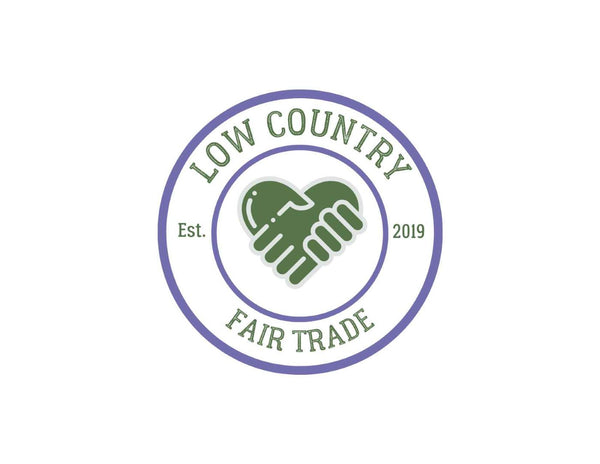OWP
Abaca Egg Baskets - Green- Set of 2
Abaca Egg Baskets - Green- Set of 2
Couldn't load pickup availability
These colorful egg baskets are handmade in the Philippines from abaca fiber. The fibers are naturally dyed and woven together to form the eggs. They are great for holding eggs at Easter, and to gift to that special someone as a decoration; when Easter is over, they can be used to hold tea bags, nuts, spices and small packages of food in the kitchen.
They come in a set of 2 (1-large & 1-small) and you can choose from Blue or Pink tones.
- Large Egg Measures - 7 1/2'' high x 4 1/4'' wide
- Small Egg Measures - 5 1/2'' high x 3 1/8'' wide
Handmade in the Philippines and Fair Trade imported.
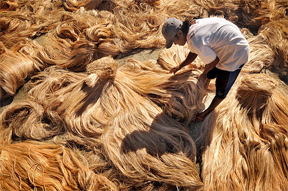 The Abaca plant is a close relative of the banana. It’s known for its strong fiber, that is extracted around the trunk of the plant, and for its many uses in the production of paper, tea bags, ropes, coarse bags, clothing, curtains, and home furnishings. Abaca is also known as “Manila Hemp” and years ago, gave rise to what we know today as Manila Folders, because they were originally made from Abaca.
The Abaca plant is a close relative of the banana. It’s known for its strong fiber, that is extracted around the trunk of the plant, and for its many uses in the production of paper, tea bags, ropes, coarse bags, clothing, curtains, and home furnishings. Abaca is also known as “Manila Hemp” and years ago, gave rise to what we know today as Manila Folders, because they were originally made from Abaca.
The Philippines is the world’s leading producer of abaca; it produces 85% of the world’s fiber. On these islands, it is also benefiting by helping to rehabilitate degraded forests and to prevent soil erosion. A year after replanting abaca, it propagates and is ready to harvest and to be replanted to continue conserving the area’s rich bio-diversity and to mitigate climate change.
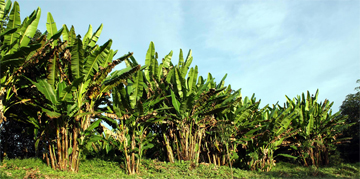
 The artisans of Disenio de Craftico are fathers, mothers, young men and women who are able to help their families through the production of these crafts. They live near Lagazpi City in the Bicol region of the Philippines. Most are hand-to-mouth workers.
The artisans of Disenio de Craftico are fathers, mothers, young men and women who are able to help their families through the production of these crafts. They live near Lagazpi City in the Bicol region of the Philippines. Most are hand-to-mouth workers.
Using abaca fibre, nito vine and other sustainable materials, they create beautiful native handcrafts which are sold to create a livelihood for their day-to-day needs, lessen the poverty in their community and strengthen family ties.
Share
About the Artisans
About the Artisans
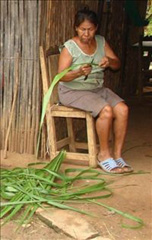 Joyeria Semilla meaning Seed Jewelry is a small fair-trade workshop in the Andean town of Villa de Leyva, Colombia. Girasol Taborda, a local artisan and social entrepreneur, started the workshop in the mid-1990s.
Joyeria Semilla meaning Seed Jewelry is a small fair-trade workshop in the Andean town of Villa de Leyva, Colombia. Girasol Taborda, a local artisan and social entrepreneur, started the workshop in the mid-1990s.
Joyeria Semilla’s objective is three-folds; to create new jobs, revive Colombia's handicrafts sector and to motivate locals to better manage their natural resources. The organization works primarily with socially and economically disadvantaged youths, single mothers and people with disabilities in the area. The company offers free training in product design, technical training and marketing to new members. Joyeria Semilla has trained them in the craft of jewelry-making.
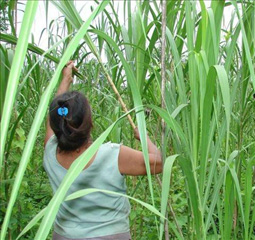
Caña Flecha or “Gynerium Sagittatum” is a locally found palm tree in the regions of the Caribbean coast. The leaves from this plant are used for making jewelry, woven hats, bags and baskets. The Zenú Indians were and their descendants inherited the tradition of picking veins of the green palm leaf for weaving. These veins were made into woven hats and other products for their personal use.
The Zenú culture is said to have existed between 200BC to1600AD. With the arrival of the colonizers in the 16th century, the indigenous community declined of unknown reasons. Today a very small population remains that claims the inheritance of the almost extinct Zenú tribe. Known for their skills in the construction of major waterworks, canals and irrigation system along with being skilled goldsmiths, examples of their accomplished craftsmanship are found in various museums around the world. Their larger means of subsistence were hunting, farming, fishing and trading.
Caña Flecha is found in abundance in the region, and hence makes for a sustainable and naturally available raw material for these products. Every bit of the plant is utilized – from using in building walls and roofs in houses to food for cattle and medicinal purposes. It is from the central vein of the leaf that the fibers for weaving are obtained. After the hard surface is peeled off, the fibers are left in the sun to dry and undergo a natural tinting process; these fibers are barely about 1 millimeter in thickness and hence call for a lot of skill and patience to weave with. The dried fibers are then processed for natural coloration - some are boiled with lemon to whiten them and some are treated with mud and boiled with plantain leaves to blacken them. The designs are based on ancient motifs and mathematical representations, which are inspired by the early Zenú culture.



